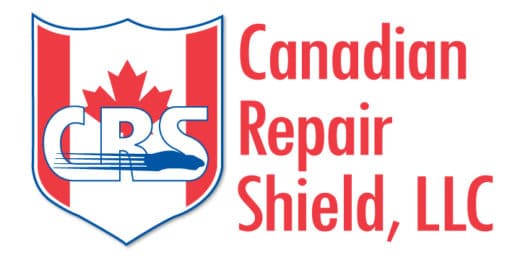Glossary
Administrator / Claims Administrator
The company that is contractually obligated to perform under the Vehicle Service Contract; they will authorize and pay the repair facility for covered repairs to your vehicle. The claims administrator works with the repair facility to make sure your claim is handled properly. Because they are the company that pays your claim, their financial strength is an important factor in choosing a reliable company.
Authorization
The approval provided by a claims administrator to permit repairs to be performed under the terms of the Vehicle Service Contract.
Authorization Number
The approval number assigned by a claims administrator indicating repairs are permitted under the terms of the Vehicle Service Contract.
Auto Warranty
The standard warranty that every new vehicle sold comes with. All factory-installed parts are covered against defects. Check your vehicle’s manufacturer’s warranty manual for specific information. Also called Manufacturer’s Auto Warranty or Factory Warranty.
Basic Warranty
The specific terms established by each manufacturer to repair vehicles through a specified mileage and/or time period. All factory-installed and many dealer-installed parts are covered under this warranty.
Certified Car
Many cars sold used or off lease are certified by the manufacturer. This means they have undergone a quality inspection process prior to sale. Often, a limited powertrain warranty is attached to them. Most do not have exclusionary coverage. There is no industry standard for certification. Dealers and/or manufacturers often add a significant cost to certified vehicles.
Claims Reserve Account
An insured account that the claims administrator will maintain to pay future claims.
Commercial Use
Any automobile used for business purposes. Tow trucks, taxis, police vehicles and vehicles used for emergency purposes are normally excluded from Vehicle Service Contract coverage.
Consumable Items
Parts such as tires, batteries, clutch plates and wiper blades that are generally not covered under any warranty or Vehicle Service Contract.
Corrosion Warranty
Covers rust through perforation on sheet metal and is offered as original warranty on new vehicles. Vehicle Service Contracts do not cover corrosion.
Covered Part
The amount you pay the repair facility for work once the vehicle is repaired. Vehicle Service Contracts are typically offered with different deductible options ($100, $50 or zero). Find out how the deductible is applied. Better Vehicle Service Contracts will apply the deductible on a per repair visit basis. Beware of those that apply the deductible on a per part basis.
Deductible
Any part of the vehicle listed in the service contract as a covered part and not excluded from coverage by the Vehicle Service Contract.
Diagnostics
The effort by the repair facility to determine the cause of the vehicle’s problem, and to determine the necessary course of repair. Most contracts typically do not cover diagnostics, unless the diagnostics lead to the repair of a covered component.
Drive Train
The components that transmit the flow of power from the engine to the wheels. The components include the clutch, transmission, drive shafts (or axle shafts in front wheel drive), U-joints and differential.
Drivetrain Warranty
A limited warranty from the manufacturer that covers certain parts of your vehicle’s engine, transmission and drive train assembly. If any of these components fail while the vehicle is covered under the warranty, the manufacturer is responsible for the repair. These warranties cover about 25% of the vehicle, and some of the most expensive parts of a vehicle. Also called Powertrain Warranty.
Extended Auto Warranty
A Vehicle Service Contract is often incorrectly referred to as an “Extended Auto Warranty”, although only a manufacturer can offer a warranty – extended or otherwise – and they are usually offered through dealerships.
Exclusionary Coverage
Exclusionary coverage offers coverage for all of the parts and components of the covered vehicle, with the exception of those parts and components specifically listed in the contract as “not covered”. Exclusionary coverage is the most comprehensive Vehicle Service Contract coverage you can purchase.
Inclusionary Coverage
A coverage plan that lists the parts that are covered by the Vehicle Service Contract. If the component or part is not listed, then it is not covered. Also called Named Component Coverage.
In-Service Date
The date the vehicle was purchased by the original owner and driven off the lot or the date the vehicle was placed in use for rental, demonstration or other purposes.
Limited Product Warranty
A warranty with certain conditions and limitations on the parts covered, type of damage covered, and/or time period for which the agreement is good.
Lubricated Part
Any part that requires lubrication to perform its function.
Maintenance Guidelines
The normal, routine maintenance that is recommended by the manufacturer of your vehicle to keep your vehicle in optimum condition. These include such things as oil changes, tune-ups, checking fluid levels, tire rotations, wheel alignments, belts, hoses and others as described in your owner’s manual. All Vehicle Service Contracts require that you properly maintain your vehicle.
Manufacturer’s Auto Warranty / Factory Warranty
The standard warranty that every new vehicle sold comes with. All factory-installed parts are covered against defects. Check your owner’s manual for specific warranty information.
Mechanical Breakdown
The act or process of failing to function or continue.
Named Component Coverage
A coverage plan that lists the parts that are covered by the Vehicle Service Contract. If the component or part is not listed, then it is not covered. Also called Inclusionary Coverage.
Payment Plan Company
The company that provides and handles payment plans for the purchase of your Vehicle Service Contract.
Powertrain Warranty
A limited warranty from the manufacturer that covers certain parts of your vehicle’s engine, transmission and drive train assembly. If any of these components fail while the vehicle is covered under the warranty, the manufacturer is responsible for the repair. These warranties cover about 25% of the vehicle, and some of the most expensive parts of the vehicle. Also called Drivetrain Warranty.
Rebuilt Title
A title issued on a vehicle where an insurance company has declared the vehicle a total loss. These vehicles were typically involved in a flood or severe accident. These vehicles are not eligible for Vehicle Service Contract coverage. Also called a Salvage Title.
Recall
When a manufacturer recalls vehicles it has manufactured back to the dealership for specific repairs related to unplanned mechanical problems and/or safety issues. Recalls are usually voluntary and are made in conjunction with regulatory control of the National Highway Traffic Safety Agency (NHTSA). They can originate with the manufacturer or with the NHTSA. Repairs performed under a recall are usually free to the consumer.
Repair Facility
A licensed automotive repair shop located in Canada or the United States. This includes dealerships, local mechanics or national repair facilities.
Salvage Title
A title issued on a vehicle where an insurance company has declared the vehicle a total loss. These vehicles were typically involved in a flood or severe accident. These vehicles are not eligible for Vehicle Service Contract coverage. Also called a Rebuilt Title.
Selling Company
A company that sells Vehicle Service Contracts or other automotive aftermarket products. Selling companies can range from dealers and direct marketing companies to membership organizations and financial institutions.
Technical Service Bulletin (TSB)
This bulletin is produced by the vehicle manufacturer and alerts automotive technicians about specific service problem areas, repair procedures, and new service techniques for a vehicle. Thousands of these are issued each year.
Transferability
A vehicle owner with Vehicle Service Contract coverage can transfer the coverage to the new owner of the vehicle if it is sold privately. A Vehicle Service Contract cannot be transferred to a dealer or auction house.
Vehicle Identification Number (VIN)
A unique 17-digit identifier of your vehicle. The most common areas the VIN can be found are:
- On the driver’s side dashboard of your car
- On your insurance card
- On the title to your vehicle
- On the vehicle’s registration card
- On a sticker inside the driver’s side door
Vehicle Service Contract (VSC)
An agreement between a consumer and the service contract provider to pay for the cost of repair or replacement of covered mechanical parts or systems that fail. In short, it is a promise to perform certain services for the consumer and to pay for covered repairs to the vehicle under the terms of the Vehicle Service Contract.
Waiting Period
A period in which no benefits will be paid if failure occurs within the specified time frame. The following additional benefits ARE available during the waiting period, as outlined in the contract:
- Breakdown Assistance Reimbursement
- Repair Negotiation Assistance
- Car Rental Reimbursement
- Trip Interruption Reimbursement
Please read the actual Vehicle Service Contract documents for important details on coverage, limits, conditions and terms.

